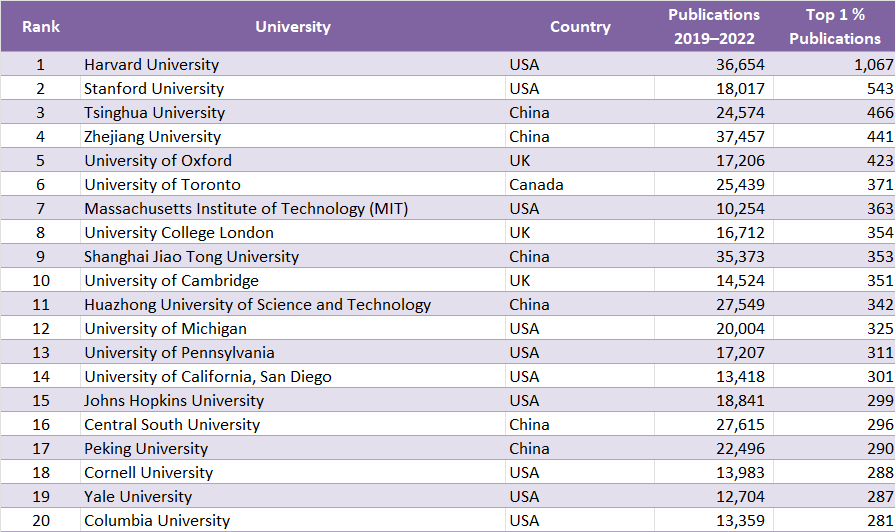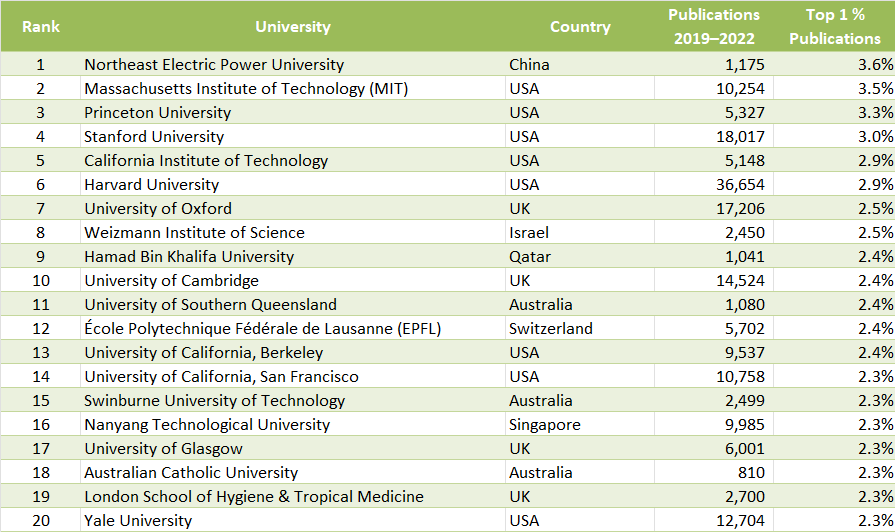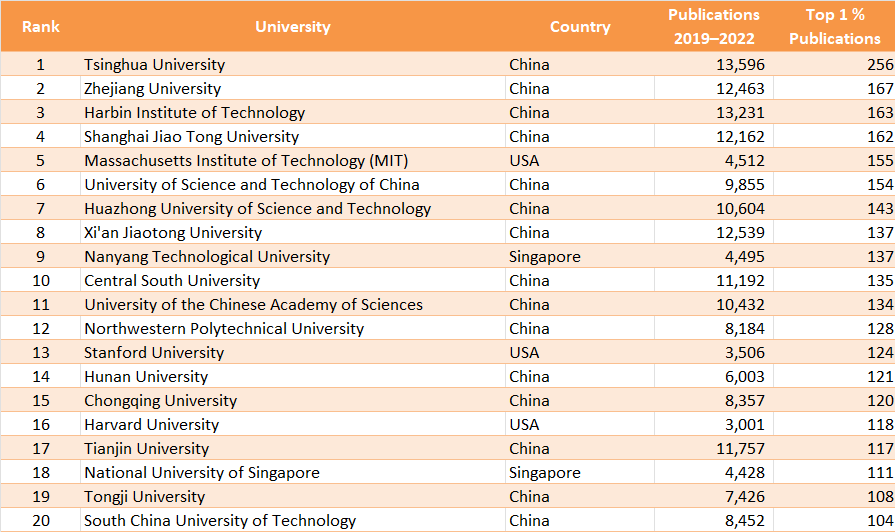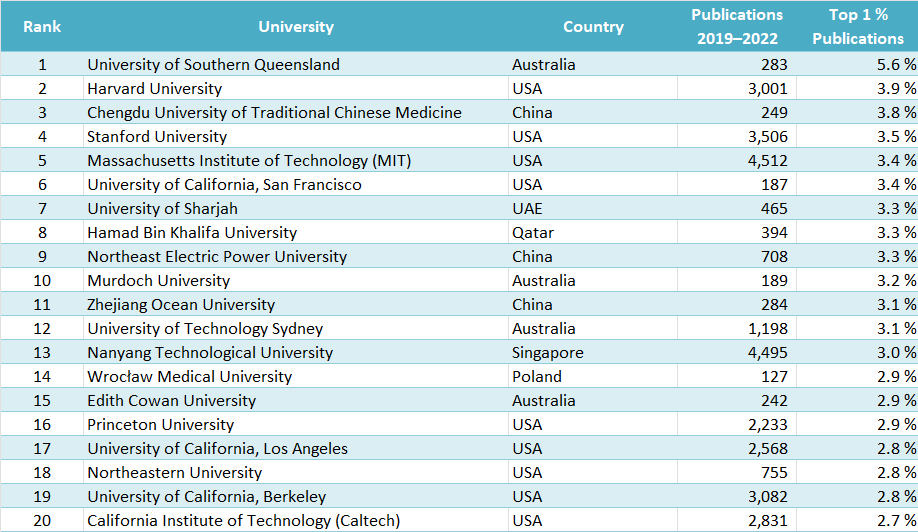The CWTS Leiden University Ranking for 2024 has been published by the Centre for Science and Technology Studies, Leiden University, The Netherlands. The Leiden Ranking is based on bibliographic data from the Web of Science database by Clarivate, Philadelphia, PA, USA. It provides a rating that is based on the absolute number of top-cited publications (i.e., one which is size-dependent), as well as a size-independent list, where the performance of a university’s publications is measured relative to its publication output.
This year’s list includes 1,506 universities in 72 countries. A university needed to have at least 800 indexed publications in the most recent four-year time window (2019–2022) to be included. China has the largest number of universities in the ranking with 313, followed by the United States with 206, India with 67, the United Kingdom with 63, and Japan with 59.
Size-Dependent Ranking (All Sciences)
(by the number of the university’s publications belonging to the top 1 % most frequently cited)

Size-Independent Ranking (All Sciences)
(by proportion of the university’s publications belonging to the top 1 % most frequently cited)

Size-Dependent Ranking (Physical Sciences and Engineering)
(by the number of the university’s publications belonging to the top 1 % most frequently cited)

Size-Independent Ranking (Physical Sciences and Engineering)
(by proportion of the university’s publications belonging to the top 1 % most frequently cited)

CWTS Leiden Ranking Open Edition
This year, CWTS has also published a version of its ranking based on an open bibliographic database called OpenAlex. This version, called the “CWTS Leiden Ranking Open Edition 2024” allows users to drill down the data to the level of single publications due to the accessibility of the database, improving the overall transparency.
According to CWTS, there is quite a strong correlation between the rankings in the two editions, but also some significant differences. They attribute these inconsistencies to differences in the publications indexed in the underlying databases, as well as possible errors in the rankings, e.g., in assigning publications to universities. Over time, CWTS expects the “traditional” Leiden Ranking to be fully replaced by the open version.




